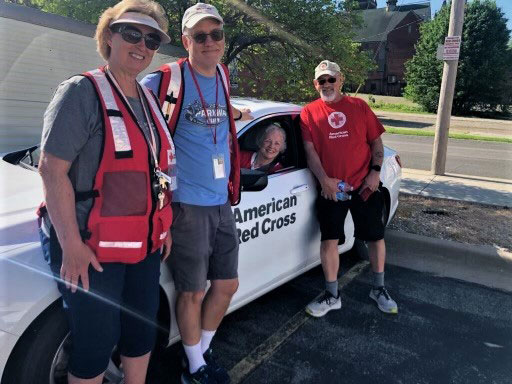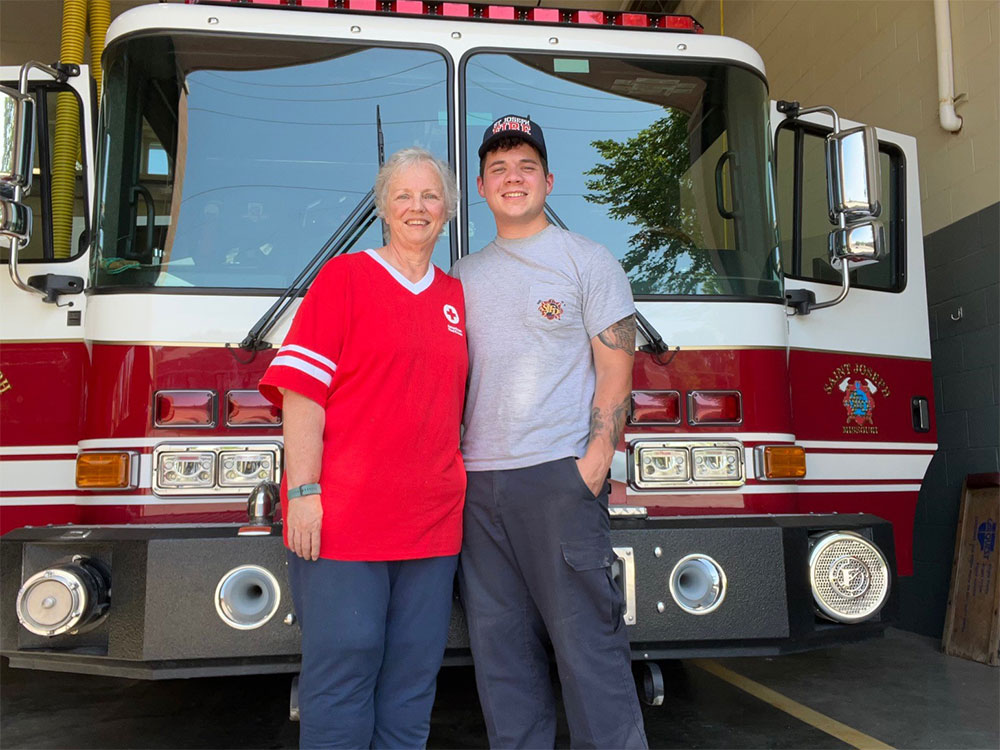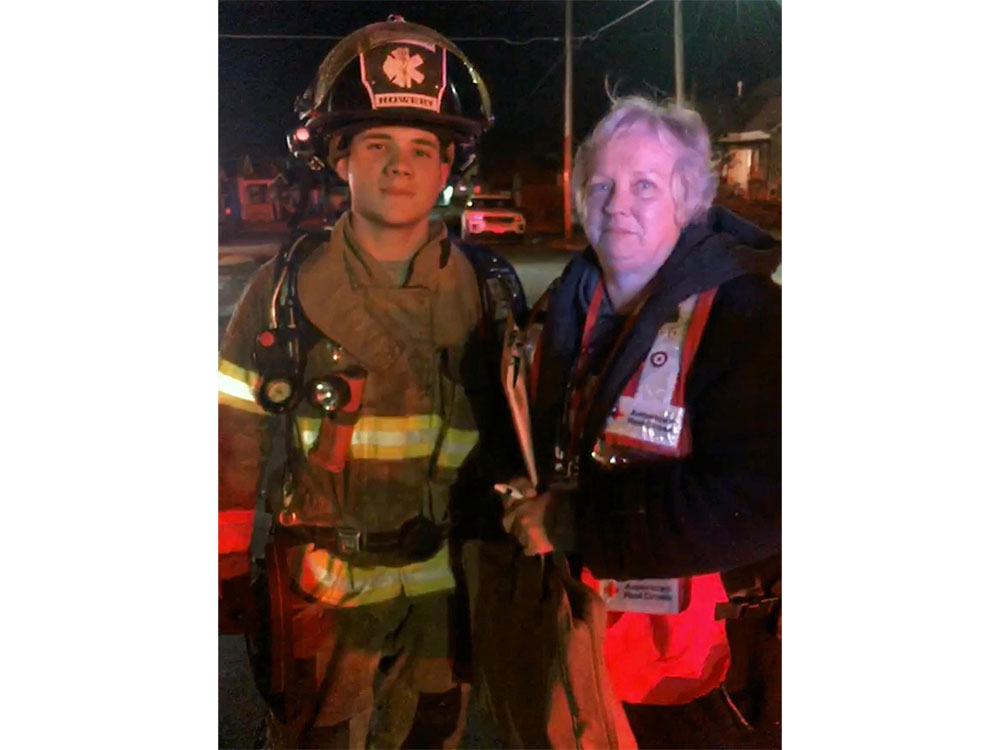
Red Cross volunteer Debbie Consolver, in car, with Ralph Dishong, Red Cross disaster program specialist in St. Joseph, next to her, and fellow volunteers Peggy Gaines and David Lochhead as they prepare to go to Elwood, Kansas to install free smoke alarms in homes. (Red Cross photo)

Red Cross volunteer Debbie Consolver and her grandson, St. Joseph firefighter Tyler Howery (Red Cross photo)

Red Cross volunteer Debbie Consolver, in car, with Ralph Dishong, Red Cross disaster program specialist in St. Joseph, next to her, and fellow volunteers Peggy Gaines and David Lochhead as they prepare to go to Elwood, Kansas to install free smoke alarms in homes. (Red Cross photo)
By Debbie Consolver
A year after retiring from the St. Joseph, Missouri School District, I felt like I needed something to do. I really wanted to help people and remembered how the Red Cross had saved my family.
In 2007, my 9-year-old grandson, Tyler Howery, woke up in the middle of the night to the sound of smoke alarms going off. Their house was full of smoke and the kitchen was on fire. He woke up his mom and brother and got them out of the house and safely away from the fire that had started within feet of their bedrooms.
All because of what he learned from Sparky the Fire Dog, the mascot the Red Cross used when Tyler was in elementary school to teach students about the importance of fire safety and what to do in case of a fire.
Tyler then decided he wanted to be a firefighter. He took the fire and EMT classes at Hillyard Technical Center during his junior and senior years of high school and has now worked for the St. Joseph Fire Department for five years.
Our paths sometime cross at home fires when I arrive as a Red Cross Disaster Action Team (DAT) member. Recently, we showed up as firefighters were wrapping up, and I saw Tyler among them. It’s always good to see the firefighters are safe, especially when it’s your own family.
Being a DAT member is a rewarding experience. We get to offer a helping hand to people at what often is the worst time in their lives.
Talking to the survivors, we can get them immediate assistance so they can have a safe place to stay and get some food and clothing. While at the scene, we can provide a warm blanket on a cold night or a bottle of water on a hot day.
Many times, they need to talk and we are good listeners. We can help them think of things that they may not have thought of when their world is crumbling in front of them.
There are so many stories to tell, and everyone’s situation is different. But what they all have in common is the shock of having lost their home and possessions, and concerns of what will they do next.
I remember interviewing a woman by phone during the Covid pandemic when much of our work was done remotely. She declined our offer of health services assistance over the phone but when I went to deliver the Client Assistance Card to her, I saw that she was an amputee.
I asked her about her prosthesis, and she said it burned up in the fire. I added health services to her case to help her and explained that mental health services also were available if she felt it would be of help to her.
There are several DAT calls that stand out in my mind. One in particular that has weighed heavily on my mind was a woman whose rented home was destroyed in a fire and she lost everything.
She had young children living in another city and had terminal cancer. She was going to use money the Red Cross had provided to take a bus to be with her kids as soon as she had her last cancer treatment.
In addition to being a DAT volunteer, I help install free smoke alarms in homes. In the past year, our team has installed more than 1,700 smoke alarms and made over 700 homes safer in our area.
I'm also the volunteer partner to Ralph Dishong, disaster program specialist in the St. Joseph office that covers 28 counties. We’re responsible for building working relationships with emergency management directors, public officials, and other agencies that assist in disasters and emergencies.
In my four years as a Red Cross volunteer, I have assisted with local flooding efforts, opening cases, worked with public affairs, feeding flood victims, disaster assessment, opening warming centers due to snow storms possibly shutting down highways, along with going to many home fires and homes having storm damage.
We are the face of Red Cross in this effort and work towards emergency preparedness and response, along with our volunteers, to assist in emergencies and disasters.